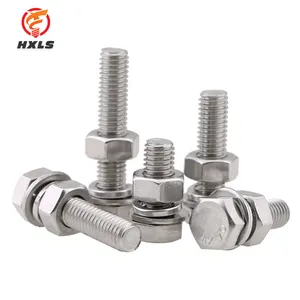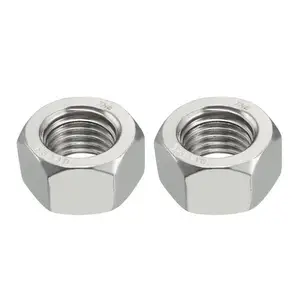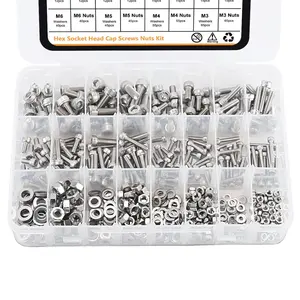Nuts and Bolts: An Introduction
Nuts and bolts are fundamental fasteners that are indispensable in various industrial and domestic applications. These mechanical components come in a variety of shapes and sizes, designed to create secure connections between different parts of machinery, furniture, and construction projects. The versatility and efficiency of nuts and bolts make them a reliable choice for professionals and DIY enthusiasts alike.
Types of Nuts and Bolts
Nuts and bolts encompass a broad range of types, each tailored to specific uses. Understanding these variations is crucial for selecting the right fastener for your needs.
- Hex Bolts: Characterized by their hexagonal head, these bolts provide a large surface area for better grip and can handle high torque loads.
- Carriage Bolts: Featuring a rounded head and square neck, carriage bolts are ideal for wood applications, preventing turning once installed.
- Wing Nuts: With wings on each side, these allow for hand-tightening, which is great for components that require frequent adjustments.
- Lock Nuts: These have additional features to prevent loosening under vibrations, making them essential in automotive and machinery applications.
- Metric and SAE Sizes: Nuts and bolts come in both Metric and standard sizes (SAE). It's important to choose the appropriate system for compatibility.
Features and Advantages of Nuts and Bolts
The features and advantages of nuts and bolts contribute significantly to their widespread use across various industries.
- Strength: Made from durable materials such as stainless steel, carbon steel, and titanium, nuts and bolts can withstand significant stress and weight.
- Corrosion Resistance: Coating options like zinc plating or use of stainless steel enhance their resistance to rust, making them perfect for outdoor applications.
- Ease of Use: Nuts and bolts are user-friendly, allowing for easy installation and removal with basic tools, crucial for maintenance and repairs.
- Versatility: These fasteners are suitable for numerous applications, from automotive to construction, showcasing their adaptability.
- Cost-Effective: Compared to complex fastening systems, nuts and bolts are economical, providing reliable solutions without straining the budget.
Applications of Nuts and Bolts
The applications of nuts and bolts span across many sectors, highlighting their essential role in both everyday tasks and specialized processes.
- Construction: Used to join structural elements, nuts and bolts ensure stability in buildings, bridges, and other infrastructures.
- Automotive Industry: Essential for assembling vehicles, these fasteners play a critical role in the overall safety and performance of cars and trucks.
- Home Improvement: From furniture assembly to mounting shelves, nuts and bolts provide robust solutions for various DIY projects.
- Electrical Appliances: Used in securing components within appliances, ensuring they operate safely and efficiently.
- Manufacturing: In fabrication and assembly lines, nuts and bolts are pivotal in creating products from electronics to machinery.



















































































































































































































